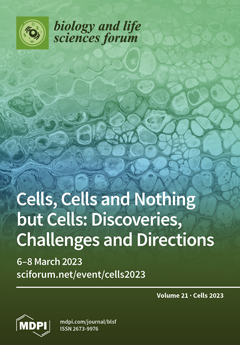Intra-tumor heterogeneity (ITH) poses a major obstacle in cancer therapy. In colorectal cancer (CRC), mutations in the transforming growth factor-β/bone morphogenetic protein (TGF-β/BMP) pathway, especially in the SMAD4 gene, have been correlated with decreased overall survival and are suspected to modulate chemoresistance. We
[...] Read more.
Intra-tumor heterogeneity (ITH) poses a major obstacle in cancer therapy. In colorectal cancer (CRC), mutations in the transforming growth factor-β/bone morphogenetic protein (TGF-β/BMP) pathway, especially in the SMAD4 gene, have been correlated with decreased overall survival and are suspected to modulate chemoresistance. We have previously shown that SMAD4
R361H is associated with differential drug response towards EGFR, MEK and PI3K inhibitors. Here, we analyzed the mechanistic role of SMAD4
R361H using oncoproteomics in CRISPR-engineered SMAD4
R361H and CRC patient-derived organoids (PD3D
®). Utilizing DigiWest
® multiplex protein profiling analysis, we confirmed a stronger response to MEK inhibition in organoids harboring SMAD4
R361H as compared to SMAD4
wt PD3D. After 24 h of incubation with 0.03 µM trametinib, we observed a more pronounced decrease in proliferation markers, such as cyclin B1 and aurora kinase A in SMAD4
R361H cells. Interestingly, there was no noticeable accumulation of caspases 3 and 9 in any organoid culture; however, there was a conspicuous trend in the accumulation of Bcl-xL in presence of SMAD4
R361H. To understand the underlying mechanism of such a discrepancy, we analyzed the protein levels and phosphorylation status of other SMADs, as SMAD4
R361H disrupts TGF-β/BMP signal transduction. Out of all SMADs, only SMAD5 showed significant changes in protein level and phosphorylation status in response to the treatment only in SMAD4
wt organoids. As previously published, BMP signaling promotes cancer cell proliferation and tumor growth. It is plausible to assume that functional loss of SMAD4 and thus loss of SMAD5 signaling renders the SMAD4
R361H subpopulation of cells more sensitive to MEK inhibitors. Loss of SMAD4 was previously shown to promote chemoresistance and was associated with a higher recurrence rate in colorectal cancer. The heterogenic landscape of mutated SMAD4 within the same tumor, in this light, can give rise to multi-drug resistant disease.
Full article



